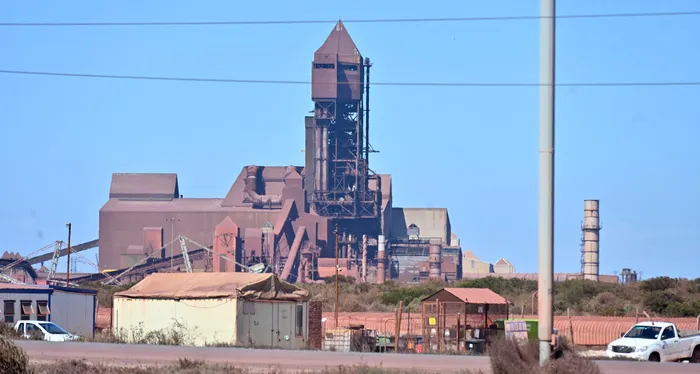Scrap metal and the price of good intentions: How the PPS turned incentives on their head
POLICY

If the scrap policies are not changed, ArcelorMittal South Africa is likely to still close its Newcastle plant.
Image: Ayanda Ndamane / Independent Newspapers
I quite like reading through policy documents, which I know is a little odd, but we are about to publish our third scrap metal report in July, and I got stuck into some of the documents which preceded the implementation of the Price Preference System (PPS) in 2013. The goals were so noble, yet the outcomes have been so perverse. It reminds me that once the government opens that free money tap, it is very hard to ever close.
A reason South Africa’s industrial policy has yielded such poor economic returns since the first Industrial Policy Action Plan (IPAP) was published in 2007, is that no one wants to think about trade-offs. There is an assumption that once we identify a problem, whatever is implemented will solve the problem (PPS and export duties in this case), only to keep this problem “solved”, the money will have to flow forever.
The PPS is particularly sticky because rather than the government disbursing subsidies out of the National Revenue Fund, the law forces scrap generators (manufacturers and state-owned enterprises mainly) to give money to scrap consumers by way of low prices. This makes it feel free when of course, it is anything but. The thing with free stuff is that demand rises very fast and supply never follows at the same pace, and we see this with the mini-mills.
Awkwardly, the Industrial Development Corporations’s book of R14 billion to the scrap consumers is underpinned by PPS and the export duties and so walking this back is complicated and expensive. The beneficiaries are folding like wet cardboard, but the money never stops flowing.
The objective of PPS was to “save” local steelmaking and it has instead distorted markets, almost closed the Newcastle mill of ArcelorMittal South Africa (Amsa), and delivered few of the promised benefits. A small number of people made a lot of money though, which is the way of these things.
At the heart of the debate is the persistent claim - pushed by a handful of mini-mill operators - that South Africa faces an “acute shortage” of ferrous scrap. This, they argue, justifies export bans, price controls, and a raft of interventions. Yet this is not true - the evidence is unequivocal: South Africa generates more than enough scrap to meet domestic demand. Recyclers collect about 3.5 million tons of ferrous scrap every year, with only 10–15% historically exported. The sharp fall in exports - from 1.8 million tonnes in 2012 to just 156 000 tonnes in 2023 - is not evidence of scarcity, but rather the direct result of government restrictions like the PPS, export taxes, and outright bans.
Mini-mills themselves have, at times, declined to buy available scrap at discounted rates, only to lobby for tighter export controls. This contradiction exposes the true aim: to keep those raw material prices suppressed.
The consequences of these policies have been devastating for the backbone of the scrap ecosystem: the informal sector. Around 300 000 South Africans - waste pickers, micro-collectors, and small traders - depend on scrap for their livelihoods.
The PPS, by mandating up to a 30% discount on metal scrap sold domestically, has transferred billions of rand from these workers to a handful of mini-mills. These subsidies are worth between R6 billion and R8bn a year and they’ve been around for over a decade. That is an astonishing R60bn, at least, extracted from the productive economy, to give to a small group of capital -intensive companies and there is no end in sight for this support. If you turn off the tap, most of these companies will disappear.
The result? Moving money from the poor, labour-intensive part of the sector, to the wealthy, capital-intensive bit.
And all those jobs which were going to be created? Formal employment in South Africa’s steel industry has collapsed by 46% over the past 15 years, falling from 50 500 jobs in 2009 to just 25 600 in 2024. All of the country’s mini-mills combined now provide just over 5 000 direct jobs—a fraction of what has been lost as integrated plants like ArcelorMittal’s Newcastle Works have downsized or closed.
With domestic demand stagnant and excess capacity rampant, mini-mills have turned to exports. Cheap scrap has allowed them to dump steel abroad. Semi-processed products like billet and ingots (scrap steel melted into big blocks) is a significant part of the export market.
This does nothing for South African consumers and risks retaliation from trading partners who may view such exports as unfairly subsidised (they are). Meanwhile, the closure of primary steel plants threatens the supply of high-grade, specialty steels needed by sectors like automotive and mining- products mini-mills cannot make from scrap alone.
Some defenders of South Africa’s restrictive approach argue that “everyone else is doing it.” This is simply untrue. Fewer than 25% of countries have any form of scrap export restriction, and major economies like the US and Japan maintain open markets. The global trend is towards conditional openness, recognising that free trade in scrap supports recycling, price transparency, and industrial competitiveness.
We have arrived at the worst possible outcome. If the scrap policies are not changed, Amsa is likely to still close its Newcastle plant, unless the government keeps paying them to operate. The thousands of fabricators earn less for their scrap and lest we forget these are unsubsidised manufacturers and failing state-owned enterprises.
And what do we have? Billions spent on a sector that is no more competitive now than it was a decade ago. Cheap steel for foreign consumers and the real risk of losing Amsa’s Newcastle operation. This is the trade-off no one wanted to measure when the policies were created, and yet here we are. The lunch, truly, is never free.

Donald MacKay is founder and chief executive of XA Global Trade Advisors.
Image: Supplied
Donald MacKay is founder and chief executive of XA Global Trade Advisors. MacKay has been advising local and foreign companies on global trade issues for more than two decades. X handle: XA_advisors; email: donald@ xagta.com; website: xagta.com.
***The views in this column are independent of IOL and Independent Media.
BUSINESS REPORT